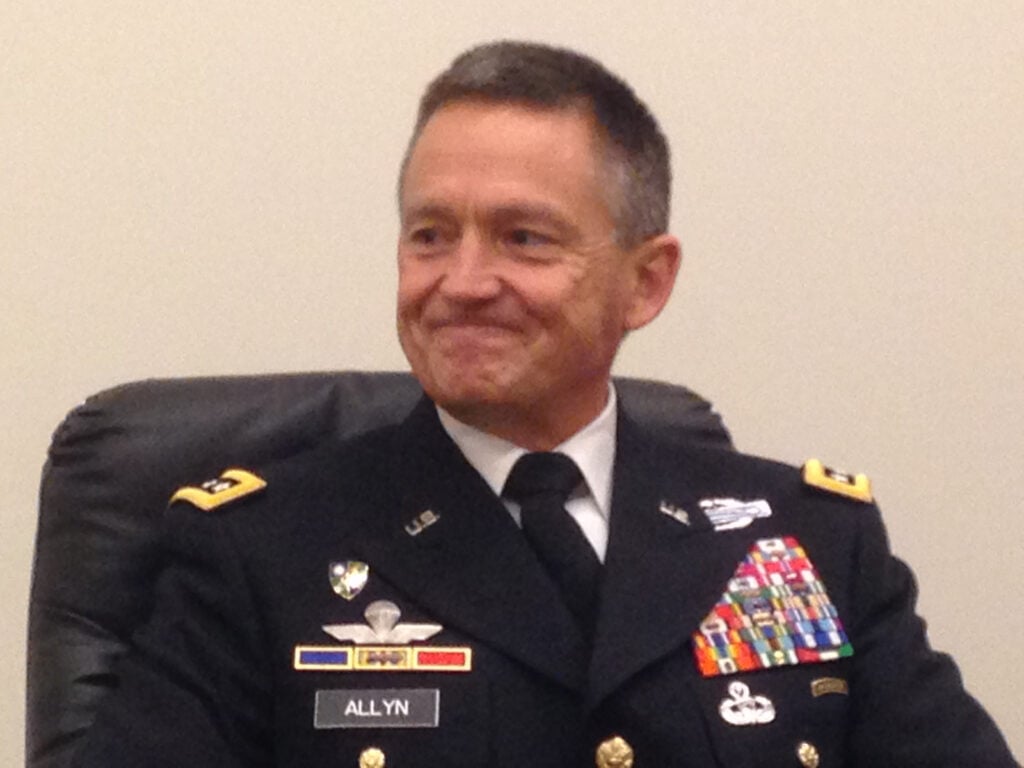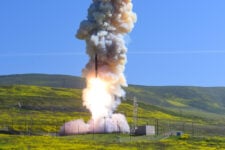
Gen. Daniel Allyn, Army Vice-Chief of Staff
ARLINGTON: Across-the-board budget cuts have already forced the Army to “mortgage our near- and mid-term modernization,” the service’s vice chief of staff warned this morning. If the mandatory spending cuts known as sequestration occur in 2016 they could “push our volunteer force to the breaking point” by undermining trust between leaders and led.
“We face a very real near-term threat to our effectiveness as a force, and it’s a law called sequestration,” Gen. Daniel B. Allyn told an Association of the United States Army (AUSA) aviation conference this morning, four days before the Obama administration unveils its defense budget.
Although 13 years of major wars are ending, Allyn said, “the reality is there is no peace dividend. The world has changed and it requires the United States Army to remain globally engaged while at the same time operating with a smaller budget and force structure in a world that is as dangerous as I have seen.”
Under the 2013 round of cuts mandated by sequestration, the Army has already been forced to abandon plans to buy new equipment of many types. “We will not restore balance across personnel, readiness and modernization for several more years as a result,” Allyn said. “If we go another round of sequestration, the impact on size, readiness and modernization will be felt for a decade — and potentially put the lives of soldiers at risk.”
The Army is already reducing its manpower and cutting aviation battalions – a move that includes retiring its workhorse OH-58D armed scout helicopters – to fit into the shrinking budget. Allyn said those who think the withdrawal of most US troops from Iraq and Afghanistan means defense spending can be drastically reduced are badly mistaken.
Unlike the post-Cold War drawdown after the 1991 Gulf War, when U.S. civilian leaders cashed in a “peace dividend,” today the Army and other services remain in action around the world, he noted. The 1990s defense drawdown “came at a time when we were not fighting [in] combat engagements on multiple continents,”Allyn said. “We do not have peace today. We are committed globally.”
Fighting around the world strains the force in ways that it didn’t have to endure during the 1990s. If leaders can’t fund the training and equipment needed to win those fights, Allyn fears, that will undermine the foundation of the all-volunteer force: trust.
“Our soldiers trust that when we ask them to do something, they will have the training, they will be prepared, they will be equipped and they will have adequate force to take on the mission that they must take on,” he said. “If we begin to falter in our capacity to do that, we begin to erode the fundamental trust that enables us to be so effective. That trust is not irrevocable and it’s built one soldier at a time.”
“if sequestration comes back again,” said Allyn, “it will put that trust at risk.”
Move over FARA: General Atomics pitching new Gray Eagle version for armed scout mission
General Atomics will also showcase its Mojave demonstrator for the first time during the Army Aviation Association of America conference in Denver, a company spokesman said.


























